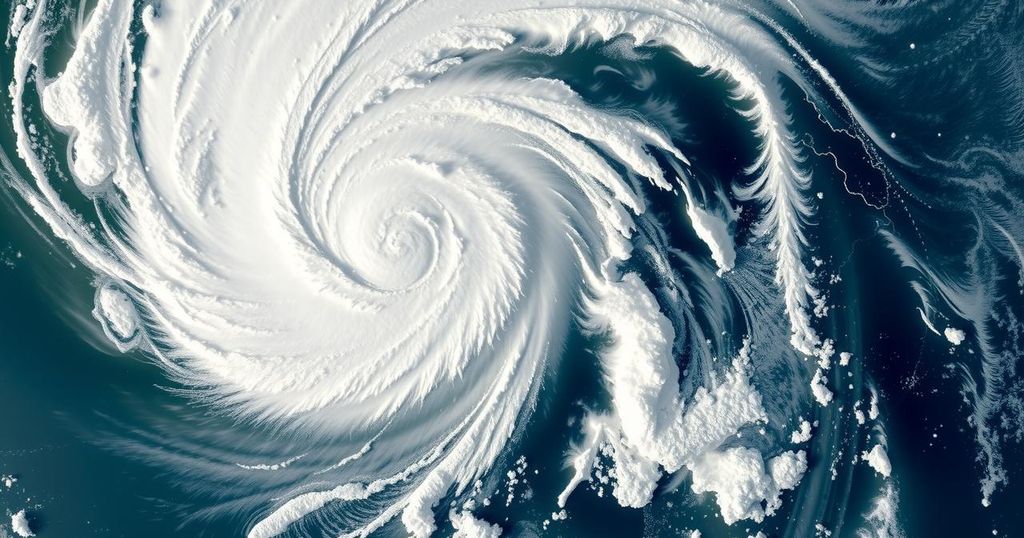Tropical Storm Dikeledi has struck northern Mozambique after causing fatalities in Madagascar. The storm is predicted to bring heavy rainfall and strong winds, prompting flood warnings from meteorological authorities. President Filipe Nyusi has urged residents to seek shelter ahead of the storm’s arrival. Dikeledi is one of several cyclones expected this storm season, exacerbated by climate change effects.
Tropical Storm Dikeledi made landfall in northern Mozambique on Monday, following its earlier impact on Madagascar, where it resulted in at least three fatalities. The storm is causing severe weather conditions in Mozambique’s Nampula region, with reports of high winds and heavy rainfall. The French meteorological service, Meteo-France, has provided updates on the storm’s intensity as it progresses into the coastal areas.
In anticipation of the storm’s destructive potential, Mozambique’s National Institute of Meteorology (INAM) issued significant flood advisories, predicting rainfall of up to 200 millimeters within a 24-hour period and wind gusts reaching 180 kilometers per hour. This natural disaster follows a tragic event from December when Cyclone Chido resulted in the deaths of over 120 individuals in the same northern region. Mozambique’s President, Filipe Nyusi, has called for residents to prioritize their safety by seeking secure shelter and ensuring essential supplies are at hand.
In Madagascar, Dikeledi struck the northern part of the island as a cyclone over the weekend, causing substantial wind damage and flooding. The National Office for Risk and Disaster Management in Madagascar confirmed the fatalities and noted the widespread impact on infrastructure and housing. There are concerns that Madagascar may face further adverse weather as the storm proceeds southward later in the week. Cyclones typically form in the Indian Ocean from November to March, and this season sees elevated sea surface temperatures, around 30 degrees Celsius, intensifying storm activity related to global warming trends.
Tropical Storm Dikeledi is part of an annual cyclone season occurring in the southwestern Indian Ocean, which typically runs from November to March. The region is prone to severe storms, given the warm ocean waters that provide the necessary energy for cyclone development. In recent years, cyclones have been increasingly impactful, attributed to rising ocean temperatures linked to climate change, which also contributes to the heightened intensity and frequency of such storms across various oceanic regions, including the North Atlantic and the Pacific. Madagascar and Mozambique frequently bear the brunt of such weather events, resulting in humanitarian crises and significant property damage.
In summary, Tropical Storm Dikeledi has caused severe repercussions in both Madagascar and Mozambique, leading to loss of life and potential flooding disasters. The government’s response, including warnings and safety measures announced by President Nyusi, reflects the urgency of the situation. Both regions must brace for potential further impacts as the storm progresses, underscoring the significance of preparedness for natural disasters brought on by climate change.
Original Source: www.barrons.com






